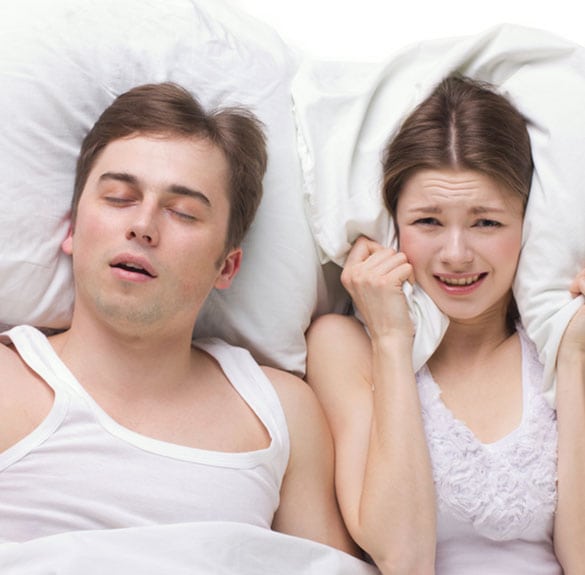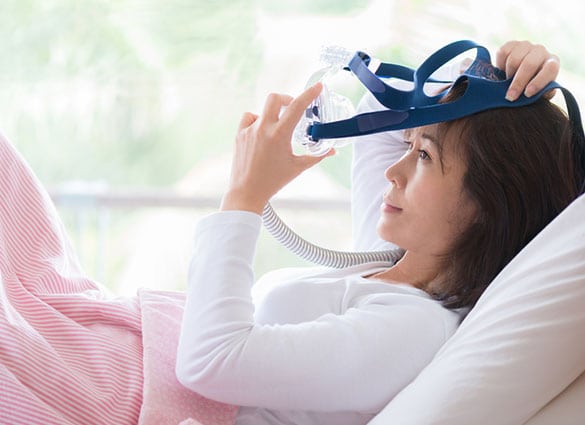
Obstructive sleep apnea is a condition characterized by breathing that stops and starts repeatedly during sleep.
This type of sleep apnea occurs when the muscles in the throat intermittently relax during sleep. This results in the airway becoming temporarily blocked.
- This type of sleep apnea varies in severity.
- There are several treatment options patients and their doctors might explore.
Causes
The muscles involved in this type of sleep apnea support the uvula, tongue, soft palate and tonsils. The airway either closes or narrows as you breathe when the muscles relax. Your breathing is then generally insufficient for 10 to 20 seconds. This may increase carbon monoxide and reduce oxygen in the body. The airway reopens because the brain senses the impaired breathing and you are briefly roused from sleep. Most people do not remember this awakening.
There are multiple risk factors that can increase your chances of developing obstructive sleep apnea:
- Excess weight
- High blood pressure
- Smoking
- Asthma
- Narrowed airway
- Chronic nasal congestion
- Diabetes
- Family history of the condition


Symptoms
There are several symptoms a person might experience with obstructive sleep apnea. The symptoms can range from mild to severe. They might include:
- Excessive daytime sleepiness
- Incidences that are observed of the patient experiencing breathing cessation during sleep
- A sore throat or dry mouth upon waking up in the morning
- During the day, it may be difficult to concentrate
- High blood pressure
- Decreased libido
- Loud snoring
- Waking up abruptly during the night and choking or gasping
- Morning headache
- Mood changes, such as irritability or depression
- Nighttime sweating
Treatment
When the condition is mild, doctors might recommend starting with some lifestyle changes. These may include:
- Losing excess weight
- Avoiding alcohol before bed and being mindful of how much is consumed during the day
- Using allergy medications or decongestants if allergies are an issue
- Exercising regularly
- Quitting smoking
- Avoiding sleeping on the back
There are certain therapies that may help to ensure that patients are getting sufficient air throughout the night to prevent, or at least reduce, apnea episodes. These might include:
- CPAP: Positive airway pressure with a CPAP is a common option. It involves wearing a mask over the nose, or sometimes the mouth and nose, while sleeping. The air it uses is at a constant pressure to help keep the passages in the upper airways open during sleep. It can also prevent snoring.
- BiPAP: This is an option that gives a different pressure when the person breathes out than the pressure that is delivered when they inhale.
- Oral mouthpiece: There are options to help to keep the throat open. These are often provided by a dentist.
In the most severe of cases, surgery might be warranted. There are different procedures to consider:
- Removing some tissue that might block an airway
- Moving the jaw forward
- Implants to promote easier breathing
- Stimulating the upper airway
- Placing a tracheostomy


